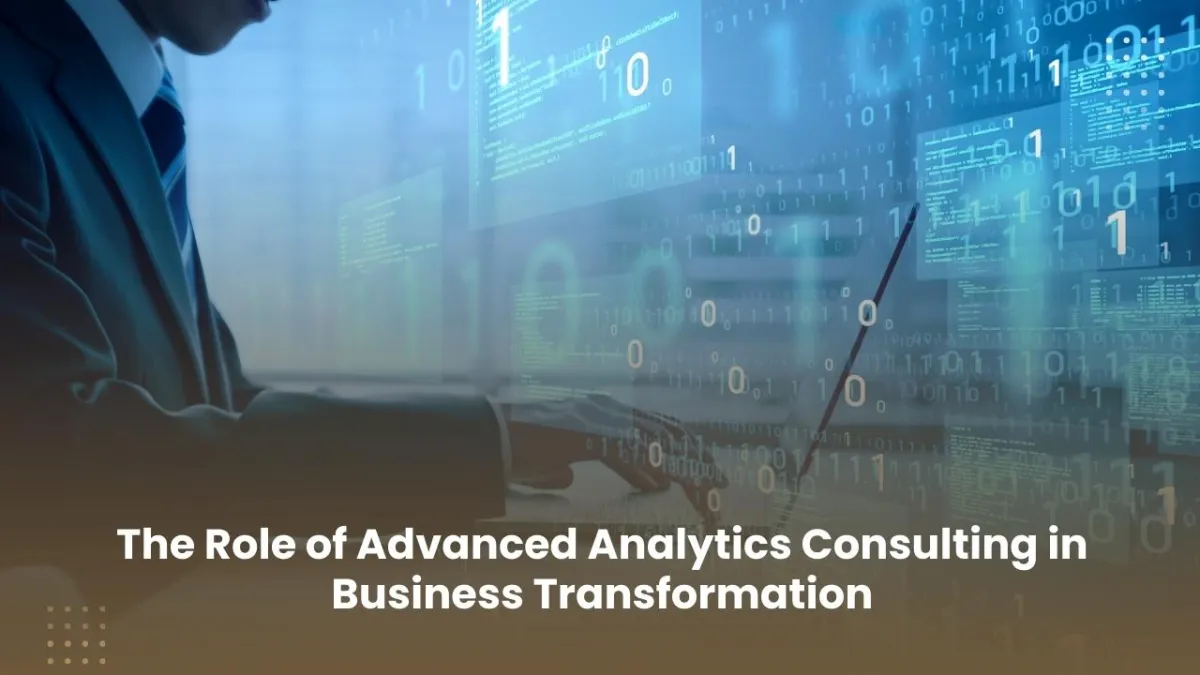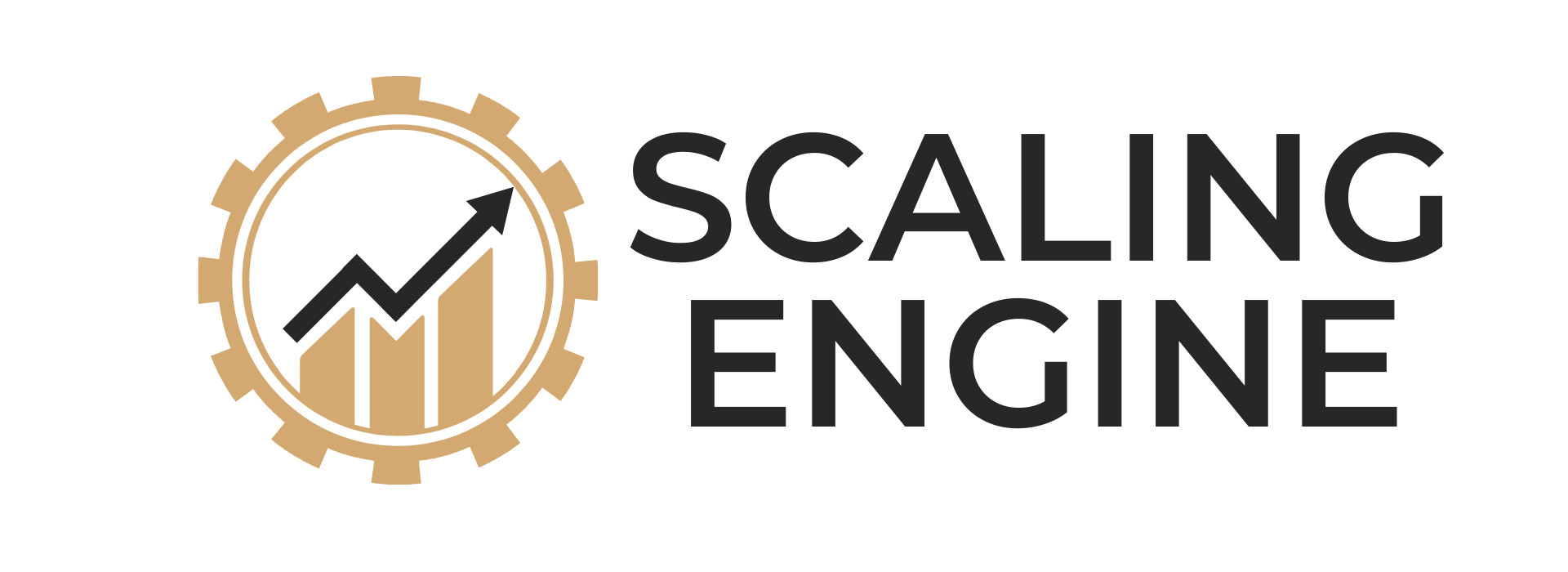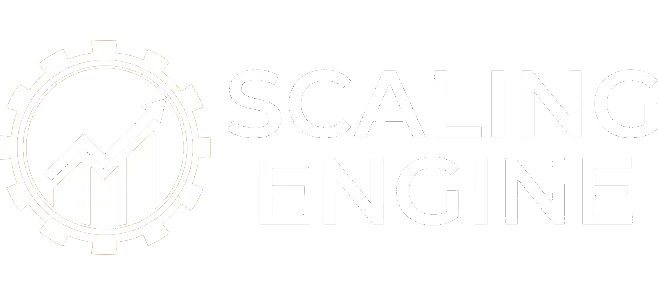
The Role of Advanced Analytics Consulting in Business
The Role of Advanced Analytics Consulting in Business Transformation
Introduction
In today’s data-driven world, businesses need to adapt quickly and make smarter, more informed decisions to stay competitive. Advanced analytics consulting is a game-changer for organizations aiming to leverage their data effectively and achieve strategic transformation. Whether it’s optimizing processes, enhancing customer experiences, or increasing operational efficiency, advanced analytics provides the insights needed to power these initiatives.
Advanced analytics consulting is not just about data collection but about making that data actionable to drive business results. In this blog, we’ll explore how advanced analytics consulting is essential for business transformation, the key services it provides, and how companies can use this powerful tool to drive sustained growth and success.
What is Advanced Analytics Consulting?
Before diving into its role in business transformation, it’s crucial to understand what advanced analytics consulting entails. Advanced analytics involves using complex techniques like data mining, predictive analytics, machine learning, and artificial intelligence (AI) to uncover insights and patterns in data. A consultant specializing in advanced analytics provides businesses with the expertise to apply these techniques in ways that add value and solve specific business challenges.
Key Components of Advanced Analytics Consulting
Data Mining and Exploration: This phase focuses on uncovering hidden patterns, trends, and relationships within large datasets to inform business decisions.
Predictive Analytics: Using historical data and statistical algorithms, predictive analytics forecasts future trends, helping businesses prepare for what’s ahead.
Machine Learning and AI Integration: By integrating machine learning and AI into analytics processes, businesses can automate decision-making and improve efficiency.
Data Visualization and Reporting: Consultants also provide data visualization tools and dashboards to help businesses make sense of complex data and translate it into actionable insights.
Why Businesses Need Advanced Analytics Consulting
For many businesses, data is being generated at an unprecedented rate. From transactional data to customer behavior, social media trends, and supply chain metrics, the amount of information available can be overwhelming. But without the right analytics strategy, this data remains underutilized.
Advanced analytics consulting helps organizations tap into the full potential of their data. Here’s why it’s critical for businesses looking to transform:
1. Enhanced Decision-Making Capabilities
With advanced analytics, businesses can go beyond gut feelings and guesswork to make data-driven decisions. This level of decision-making accuracy is crucial when it comes to crafting long-term strategies, optimizing operations, and predicting future market trends.
2. Improved Customer Insights and Experiences
Analytics consultants can help businesses better understand customer behavior and preferences through segmentation, sentiment analysis, and predictive modeling. These insights can be used to tailor marketing efforts, improve product offerings, and create personalized customer experiences.
3. Cost Reduction and Operational Efficiency
Advanced analytics consulting helps businesses identify inefficiencies in their operations and areas where costs can be reduced. From optimizing inventory management to streamlining processes, data-driven decisions can lead to significant cost savings.
4. Competitive Advantage
In today’s hyper-competitive market, those who can leverage their data for better insights hold a distinct advantage. Advanced analytics consulting helps businesses develop models and strategies that set them apart from competitors.
5. Risk Management and Forecasting
Using predictive analytics, businesses can better forecast market trends, customer behaviors, and potential risks. This forward-looking approach allows businesses to mitigate potential risks and capitalize on opportunities before they arise.
Key Services Provided by Advanced Analytics Consultants
An advanced analytics consultant doesn’t just bring technical expertise but also offers strategic insight into how to leverage analytics for business transformation. Here are some of the key services offered by advanced analytics consultants:
1. Business Analytics Services
Business analytics services are the foundation of any advanced analytics strategy. Consultants work with organizations to design analytics frameworks that collect, analyze, and interpret business data. This includes creating dashboards, developing reports, and implementing analytical tools that provide actionable insights to improve business performance.
Core Features of Business Analytics Services:
Data collection and cleansing
Data analysis and reporting
Real-time data monitoring
Custom dashboard creation
Strategic business reporting
2. Predictive Analytics Consulting
Predictive analytics allows businesses to predict future outcomes based on historical data. By using algorithms and machine learning models, predictive analytics consulting enables organizations to anticipate market trends, customer behaviors, and sales forecasts.
Core Features of Predictive Analytics:
Forecasting demand and sales
Predicting customer churn
Identifying potential market opportunities
Risk analysis and mitigation
3. Machine Learning and AI Integration
Machine learning (ML) and AI are game-changing technologies in advanced analytics. Consultants help businesses integrate these technologies into their data models to enhance automation, improve decision-making, and create intelligent systems that learn and adapt over time.
Key Benefits of Machine Learning and AI Integration:
Automating repetitive tasks
Improving personalization in marketing and sales
Streamlining customer service with AI-powered chatbots
Enhancing fraud detection systems
The Business Transformation Process with Advanced Analytics Consulting
Transforming a business using advanced analytics is a multi-phase process that requires strategy, implementation, and continuous optimization. Here’s how advanced analytics consultants help businesses through this transformation:
1. Discovery Phase: Identifying Business Objectives
The first step in the business transformation process is understanding the organization’s objectives and identifying areas where advanced analytics can make an impact. Consultants work closely with key stakeholders to define goals, whether it's improving customer retention, enhancing operational efficiency, or increasing revenue.
2. Data Collection and Preparation
Data is the cornerstone of advanced analytics. In this phase, consultants help businesses collect, cleanse, and organize data from various sources, ensuring it’s accurate, up-to-date, and ready for analysis.
3. Advanced Analytics Implementation
Once the data is prepared, consultants apply the appropriate analytical techniques, including predictive modeling, machine learning, and data mining, to generate actionable insights. This is where the true power of analytics is unleashed, providing businesses with the knowledge needed to drive transformation.
4. Continuous Monitoring and Optimization
Business transformation through advanced analytics is not a one-time event. Consultants help businesses implement continuous monitoring and optimization processes, ensuring that the analytics models are updated with new data, trends, and market shifts to maintain competitive advantage.
Maximizing Business Transformation with Advanced Analytics Consulting
In the first part, we explored the basics of advanced analytics consulting, its significance, and the core services it offers. Now, let’s dive deeper into the steps for integrating advanced analytics into your business strategy, the ongoing optimization process, and how to achieve the best possible results. These insights will help organizations maximize the potential of their analytics initiatives and ensure sustained business growth.
The Process of Integrating Advanced Analytics into Business Strategy
For businesses aiming to achieve significant transformation, integrating advanced analytics consulting into their strategy is a crucial step. However, the process isn't just about acquiring the right tools and technologies; it's about fostering a data-driven culture and implementing a system that supports continuous growth. Here’s a breakdown of the process:
1. Defining Business Goals and KPIs
The first step in successfully integrating advanced analytics is aligning the analytics efforts with the broader business goals. Business analytics consultants work closely with leadership teams to understand the key performance indicators (KPIs) and long-term objectives. These KPIs could range from increasing sales, improving customer satisfaction, enhancing operational efficiency, or reducing costs.
Actionable Tip:
When defining KPIs, ensure that they are SMART (Specific, Measurable, Achievable, Relevant, Time-bound) to enable a clear measurement of success.
2. Data Collection and Integration
Once goals are defined, the next step is gathering and integrating data from various sources. This could include customer data, sales figures, supply chain metrics, or even external market data. The integration of this data from different touchpoints allows businesses to create a 360-degree view of their operations and customer behaviors.
Actionable Tip:
Leverage data lakes and cloud-based storage solutions for centralized data management, which enhances accessibility and collaboration across departments.
3. Data Preparation and Cleansing
Data preparation and cleansing are critical steps that ensure the quality of the data being used for analytics. Advanced analytics consultants work with businesses to clean up messy or incomplete data and ensure that only accurate, high-quality data is fed into analytical models. This is where businesses see the most immediate impact of their analytics initiatives, as poor-quality data can lead to incorrect insights.
Actionable Tip:
Use automated tools like Talend, Alteryx, or Informatica to streamline the data cleansing process and ensure consistency.
4. Building Predictive Models and AI Algorithms
Once data is cleansed and prepared, the consultant helps build predictive models, machine learning algorithms, and other advanced techniques to generate actionable insights. This phase involves applying sophisticated models to uncover hidden patterns, forecast trends, and provide recommendations.
Actionable Tip:
Start small by focusing on one key area, such as improving customer retention or optimizing supply chains, before scaling the model across different business areas.
Optimizing Analytics with Continuous Monitoring and Feedback
The integration of advanced analytics doesn’t stop once the models are deployed. Ongoing monitoring and optimization are crucial for ensuring that analytics solutions continue to add value as the business landscape evolves. Here’s how you can ensure long-term success:
1. Real-Time Data Monitoring
In today’s fast-paced environment, businesses need to act quickly based on real-time insights. Analytics consultants help set up systems for monitoring live data streams, enabling businesses to make timely decisions and optimize operations dynamically.
Actionable Tip:
Implement real-time data analytics platforms like Tableau, Power BI, or Google Data Studio to monitor key metrics and trigger automatic alerts for significant changes.
2. Regular Model Evaluation
Advanced analytics models are built based on historical data, but markets, customer behaviors, and business needs evolve. To stay relevant, these models need to be constantly evaluated and updated. A business analytics consultant ensures that your models are regularly revisited and recalibrated to reflect the latest data.
Actionable Tip:
Schedule quarterly reviews of your analytics models to ensure their accuracy, taking into account changes in market conditions or shifts in customer behavior.
3. A/B Testing and Experimentation
Experimentation is a key part of optimizing business strategies through analytics. By using A/B testing, businesses can evaluate the effectiveness of different strategies or campaigns based on actual data. Consultants help set up and analyze A/B tests to ensure that businesses are optimizing the right processes and making data-backed decisions.
Actionable Tip:
Use A/B testing to refine your email marketing campaigns, landing page designs, or pricing strategies, allowing data to guide the decision-making process.
The Importance of Data-Driven Culture in Business Transformation
While implementing advanced analytics consulting solutions is crucial, fostering a data-driven culture within the organization is equally important. Businesses that succeed in their transformation efforts don’t just use analytics for decision-making—they embed it in the fabric of their culture. Here’s why:
1. Empowering Teams to Make Data-Driven Decisions
When employees are equipped with the right tools and training, they can make more informed decisions at all levels of the organization. Data-driven cultures ensure that every department, from marketing to HR to the supply chain, can access and use data for their specific functions.
Actionable Tip:
Offer training sessions and workshops on data literacy to help your team understand the value of analytics and make data-driven decisions confidently.
2. Promoting Cross-Departmental Collaboration
Analytics doesn’t belong to one department—it’s a tool that can benefit the entire organization. By promoting cross-departmental collaboration, businesses can use analytics to enhance multiple aspects of operations. This collaborative approach ensures that analytics efforts align with overall business objectives.
Actionable Tip:
Foster regular communication between the marketing, sales, and operations teams to ensure that data-driven insights from one department are being utilized across others.
3. Sustaining Long-Term Growth
A business that embraces a data-driven culture is more likely to sustain long-term growth because it’s constantly adapting and evolving based on real-time insights. Analytics allows businesses to identify new opportunities, mitigate risks, and stay ahead of the competition.
Actionable Tip:
Implement a continuous feedback loop, where analytics results are used to inform and adjust business strategies on a regular basis.
Conclusion: Embracing Advanced Analytics for Business Transformation
Advanced analytics consulting has become a cornerstone of business transformation. By integrating advanced analytics into business strategies, organizations can optimize decision-making, enhance customer experiences, reduce costs, and gain a significant competitive edge. But it’s not just about the tools or algorithms—it’s about embedding a data-driven culture that empowers teams to make smarter decisions at every level.
Whether you are in the process of transforming your operations, marketing strategies, or customer experience, working with an advanced analytics consultant can provide you with the guidance and expertise you need to succeed. As we’ve discussed, the transformation process involves multiple phases, including data collection, model implementation, continuous monitoring, and fostering a data-driven culture. When done right, the results are game-changing.
To leverage advanced analytics for your business transformation, partner with a business analytics consultant and take the first step toward realizing your full potential today.


